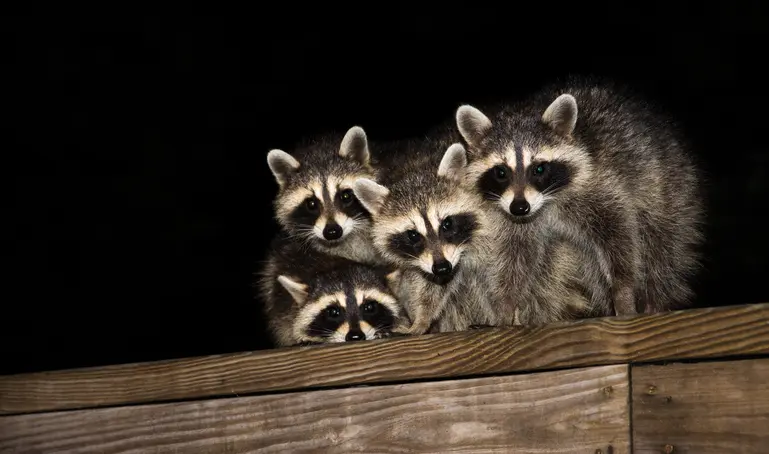With their unique black masks and ringed tails, raccoons are easy to spot in both country and urban areas. These smart animals may look cute and harmless, but they can become unwanted guests in your yard and cause a lot of problems. Raccoons are known for getting into trouble, like digging up your yard or going through your trash. To keep raccoons out of your yard, you need to know how they act and use effective methods to keep them away.
How to Understand Raccoon Behaviour:
Raccoons are very flexible animals that are good at finding solutions to problems. They are good at finding food because they are always looking for it and have a strong sense of smell. They eat a lot of different things, from fruits and veggies to small mammals and insects, depending on what’s available. Raccoons, on the other hand, don’t pick favourites and have been seen eating from trash cans and fields.
The main time these animals are busy is at night, which is called nocturnal. They like to hunt and explore at night because they can see and smell very well at that time of day. Most of the time, raccoons hide during the day in hollow trees, abandoned burrows, or even your roof or crawlspace if they can get in.
Problems that raccoons often cause:
Problems with Trash Cans: Raccoons are known to knock over trash cans and scatter trash all over your yard. They can make a lot of mess, and it can be hard to clean up after their adventures at night.
Raccoons are very good at digging, and they can do a lot of damage to your yard as they look for grubs and bugs. They’ll also take your fruits and veggies as they please.
Raccoons may look for cozy places in your home, like your attic, chimney, or crawlspaces, especially if you are nursing a baby. Once they’ve moved in, it can be hard to get them to leave.
There are health concerns because raccoons can spread diseases like rabies and roundworms to people and pets. Their waste can also be bad for your health.
Tips for Keeping Raccoons Out of Your Yard:
Secure Trash Bins: Buy trash cans that are resistant to raccoons or use bungee cords or heavy-duty lids to keep your current ones safe. Raccoons will have a harder time getting to your trash because of this.
Raccoons are drawn to food sources, so don’t leave pet food or bird boxes outside overnight that aren’t locked up.
flower Fences: To keep your flower beds safe, use fences or wire mesh. Raccoons are good at climbing, so make sure the fence is high enough and goes partly underground to keep them from digging.
Remove Access Points: Seal up any holes or cracks that could let pests into your home, like those in the attic, chimney, or vents. If the raccoons have already gotten in, you may need to have them removed by a professional.
Raccoons can tell the difference between light and sound, so use motion-activated lights and sprinklers. Put in lights or sprinklers that turn on when they sense movement to keep them away from your property.
Changes to the habitat: Cut back tree branches that hang over the edge of the ground and get rid of buildings that raccoons could use as dens.
Humane Trapping: If raccoons become a persistent problem, professionals may need to come in and catch and get rid of them in a humane way.
Keep your yard clean. Pick up any fruit, nuts, or bird seed that has fallen and could bring raccoons on a regular basis.
Understanding how raccoons act and using these tips will help you keep them out of your yard and avoid problems with these smart and clever animals. If you have problems with raccoons that won’t go away or find them inside your home, you should hire professional raccoon removal services to make sure the problem is fixed safely and effectively.
At Raccoon Control Bolton, We have professional and insured pest control specialists who have the tools available to take care of your break-in. Our raccoon service is backed up with a 2-year service warranty. If raccoons return, we will too at no additional cost. Call 647-578-7949
